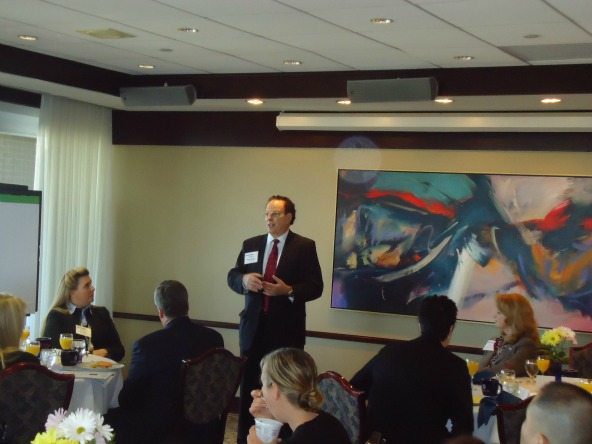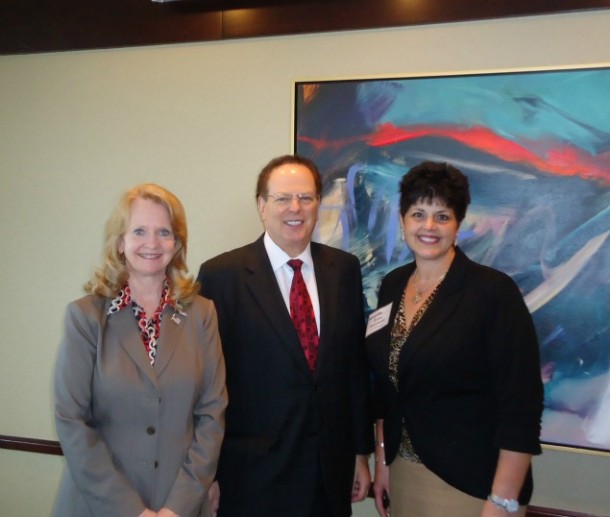
Last week the WashingtonExec Strategic Human Capital and Critical Talent Council presented David Kriegman, former Executive Vice President and Chief Operating Officer (COO) of SRA International and author of the upcoming book with the working title of Zero to a Billion: 58 Rules for Growing Your Business, at a breakfast roundtable held in Tysons Corner. Kriegman spoke to a group of top Human Resource Executives and pre-selected critical talent personnel in the government contracting industry. The Council is led by Co-Chairpersons Kay Curling, SVP and Chief HR Officer of Salient Federal, and Eleni Antoniou, VP of HR of FCi Federal.
Kriegman discussed how to maintain a strong corporate culture and values system during a time of economic restraint. He argued that strong corporate core values matter not just in print, but also in execution. The important aspects of your corporate culture are those that are tied to your company’s core values.
The company’s values do not have to change as your company grows and expands the type of services it offers. Your company will maintain its core culture as it grows from a small business to even to a multi-billion dollar company if senior leadership stays true to their core values. However, cultures are fragile and will change quickly if the leadership stops supporting those values. To Kriegman, values are not what is written, but rather, the behaviors that leadership exhibits in hiring and retaining employees. These are identified not by what you say or write, but by who you reward, who you promote, and who you let go.
“David’s experience and leadership insights are extremely valuable to HR strategists as we continue to adapt our cultures to new environments,” said Kerri Morehart, Vice President for Human Resources for Pragmatics, Inc.
Kriegman made a point that even in an environment of Lowest Price-Technically Acceptable (LPTA) procurements, there are still business reasons to manage employees careers. One of the reasons companies have become increasingly vulnerable on their recompetes is that their labor costs have increased over time in a manner that made them less competitive. By managing people’s careers and moving people across projects to give them promotion opportunities, you can help maintain a competitive labor mix and keep your labor costs in balance. The HR department has to take a leadership role in doing this in a manner that maintains the proper support to the projects.
WashingtonExec Strategic Human Capital Members then divided into groups of four and five individuals to discuss what worked and did not work at their companies regarding fostering a sustainable corporate culture.
Each participating government contracting company sponsors a human resource executive and nominates one critical talent individual for this WashingtonExec Council. Building trust is a key aspect of any business relationship. This one-of-a-kind group allows the VP of HR the opportunity to help develop the next generation of HR leadership while building their own networks.
Dr. Stephen Fuller of George Mason University’s (GMU) Center for Regional Analysis discussed workforce trends with the group last month and Dr. Ginny Bianco-Mathis of Marymount University presented “Surviving and Thriving in Today’s Economic Environment: Focus on Talent Management” earlier this year. The Council had its first meeting in January of this year.


